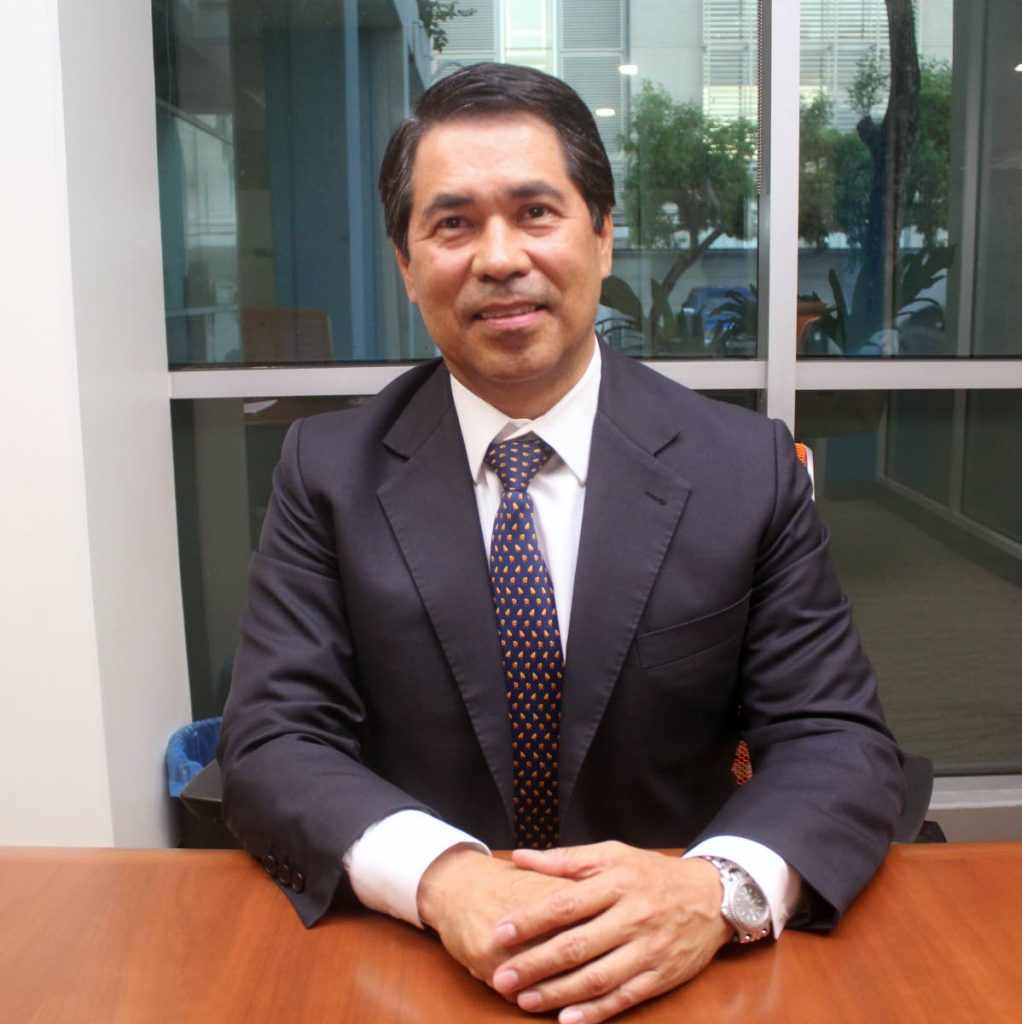IDB Invest targets private sector

The Inter-American Development Bank (IDB) is best known as a preferred lender to governments for loans, grants and expertise to develop the public sector. But since 2016, the bank has been working through a special arm, IDB Invest, to target the private sector.
“The IDB Group wants to develop and promote best practices, financial inclusion and sustainable financing. In order to create development, you need both a public and private sector working together,” IDB Invest’s chief of financial institutions, Enrique Cañas told Business Day in an interview.
Cañas, who is based in Washington, DC, was in Trinidad recently to meet with potential clients as well as raise awareness of this new facility for private sector development.
“In most economies, more than 70 per cent of employment comes from the private sector. The public sector should therefore create that framework for the private sector to grow. There are many angles to promote this growth, and as a development bank we want to create that avenue for investment that will help create employment,” Cañas said.
Among the areas the bank wants to focus on are tourism, agribusiness and renewable energy, as well as general manufacturing. The Caribbean, he said, has a natural wealth with great potential in these sectors. Diversification is the key, and for countries like TT, he said, it is important to create more growth in the economy and not just depend on mono-production like oil and gas.
The bank is targeting financial institutions and will help facilitate financing for certain types of private sector, including offering quasi-equity (debt instruments that work like an equity investment, filling the gap between both and allowing more flexibility for repayment), depending need and duration (either short-term or long-term). It will lend capital at market rates but it will also provide invaluable institutional knowledge, and perhaps most attractively for cash-strapped countries like the Caribbean, assumes or mitigates the risk for certain major products, like hotels, that can take years to see returns on the investment, as well as guarantees for import/export obligations. One of its stipulations, though is that the project must have a net benefit to the development of society—usually in tandem with the bank’s own pillars, including gender parity, small and medium-sized enterprise SME development, encouraging more women in business, technology, climate change and renewable energy.
One of the projects it’s working on now in TT, for example, is a partnership with the TT Mortgage Financing Company (TTMF) to develop low-cost housing.
IDB Invest is also trying to encourage its potential clients—like banks and other lending agencies— to consider special attention to SMEs as a viable and profitable business.
“Bank usually are very conservative and the good thing about that is create strong financial sector—strong banks with good capital and good loans. That’s good but on the other hand it can become so conservative where they only lend to big companies who have big assets to pledge as collateral,” he said. Banks have a model and they will stick with it because it works.
There’s always competition between corporate and consumer lending, but IDB Invest has observed that banks are looking for ways to diversify portfolios and move into markets where they can compete more. “We see SME lending becoming more relevant,” Cañas said.
IDB Invest has done well with big banks, he said, but now they’re looking at smaller and medium-sized banks, and providing not just capital but expertise and experience. In Central and South America, for example, they have encouraged partner banks to create specialised units for SMEs, something which has worked out well, he said. SMEs run by women are also among the portfolios that see the most growth, he said. “There are a lot of women-led business not being targeted so banks let go opportunities even though those portfolios behave better, they are more loyal and repay loans more frequently. Women are also increasingly becoming the major decision-maker in the home. We can show banks ways to market and create products for that market.”
Cañas said IDB Invest goal is to bring US$3.5 billion in direct private sector capital to the IDB’s member countries. “We’ve seen a lot of growth since our launch. It’s relatively new but we think it works really well because we are focused on creating public and private support."
The bank doesn’t have specific targets on how much it wants to invest in each country—that depends on clients and projects—but they do have a mandate to focus on smaller countries “because here is where they need us the most.” Nearly half of all investment is in smaller countries so the Caribbean is definitely a target.
“We are probably going to be the largest Latin American development bank for investment in the region,” he said.

Comments
"IDB Invest targets private sector"